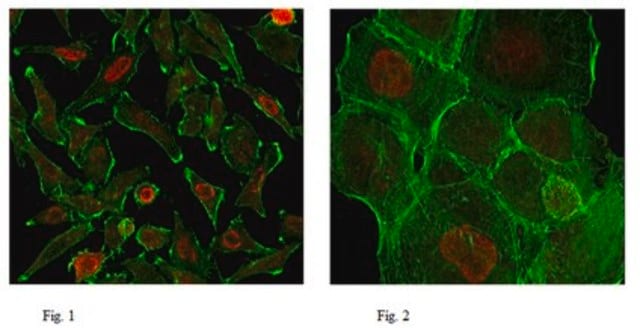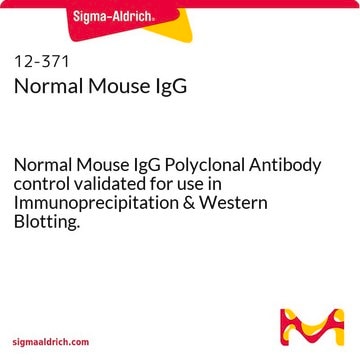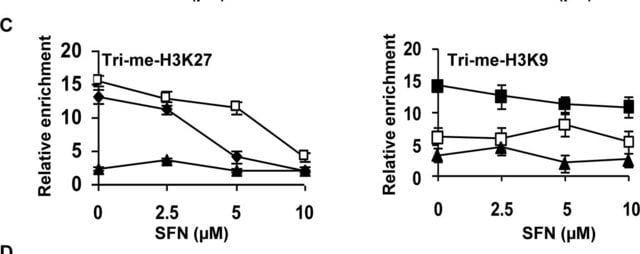05-623
Anti-RNA polymerase II Antibody, clone CTD4H8
clone CTD4H8, Upstate®, from mouse
Synonym(s):
Anti-NEDHIB, Anti-POLR2, Anti-POLRA, Anti-RPB1, Anti-RPBh1, Anti-RPO2, Anti-RPOL2, Anti-RpIILS, Anti-hRPB220, Anti-hsRPB1
About This Item
Recommended Products
biological source
mouse
Quality Level
antibody form
purified immunoglobulin
antibody product type
primary antibodies
clone
CTD4H8, monoclonal
species reactivity
Saccharomyces cerevisiae, human, mouse, rat
packaging
antibody small pack of 25 μg
manufacturer/tradename
Upstate®
technique(s)
ChIP: suitable (ChIP-seq)
western blot: suitable
isotype
IgG1
NCBI accession no.
UniProt accession no.
shipped in
dry ice
target post-translational modification
unmodified
Gene Information
human ... POLR2A(5430)
mouse ... Polr2A(20020)
rat ... Polr2A(363633)
General description
Specificity
Immunogen
Application
Epigenetics & Nuclear Function
Transcription Factors
Quality
Western Blot Analysis:
0.05-1 μg/mL of this lot detected RNA polymerase II in HeLa nuclear extracts. 0.1-2 μg/mL of a previous lot detected RNA polymerase II in 3T3 nuclear extracts
Target description
Physical form
Storage and Stability
Handling Recommendations:
Upon receipt, and prior to removing the cap, centrifuge the vial and gently mix the solution. Aliquot into microcentrifuge tubes and store at -20°C. Avoid repeated freeze/thaw cycles, which may damage IgG and affect product performance. Note: Variability in freezer temperatures below -20°C may cause glycerol containing solutions to become frozen during storage.
Analysis Note
A431 nuclear extract.
Other Notes
Legal Information
Disclaimer
Not finding the right product?
Try our Product Selector Tool.
recommended
Storage Class Code
10 - Combustible liquids
WGK
WGK 1
Certificates of Analysis (COA)
Search for Certificates of Analysis (COA) by entering the products Lot/Batch Number. Lot and Batch Numbers can be found on a product’s label following the words ‘Lot’ or ‘Batch’.
Already Own This Product?
Find documentation for the products that you have recently purchased in the Document Library.
Our team of scientists has experience in all areas of research including Life Science, Material Science, Chemical Synthesis, Chromatography, Analytical and many others.
Contact Technical Service








